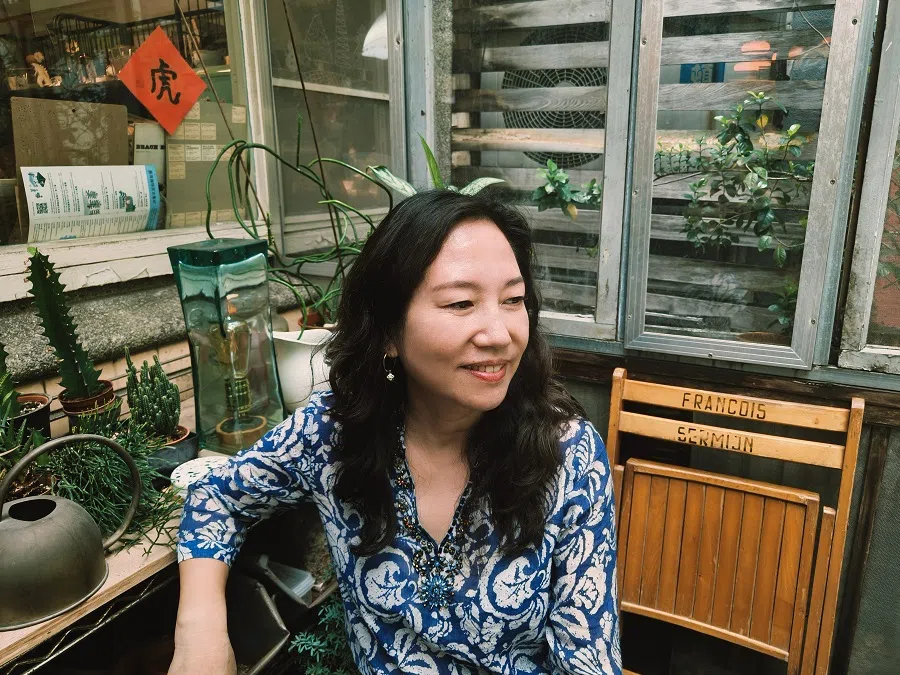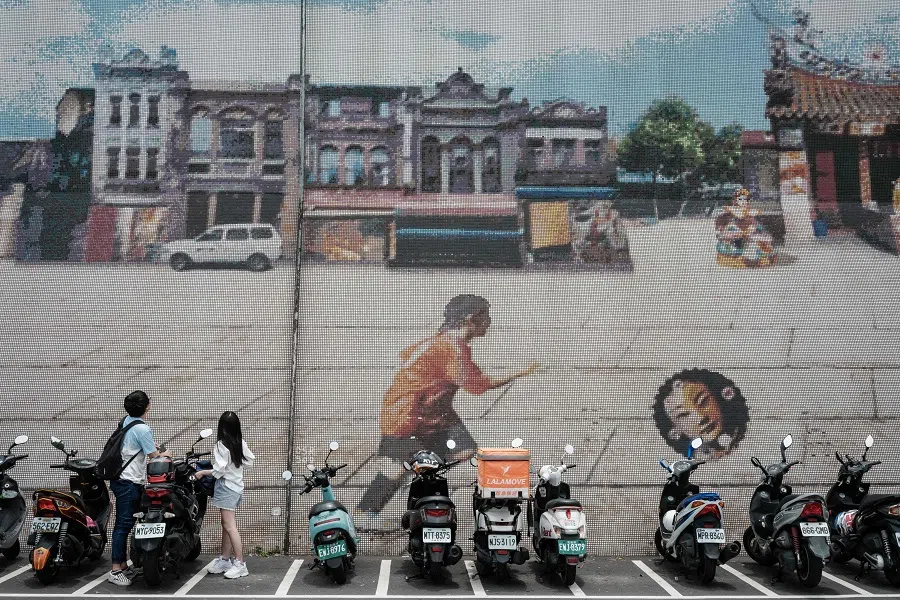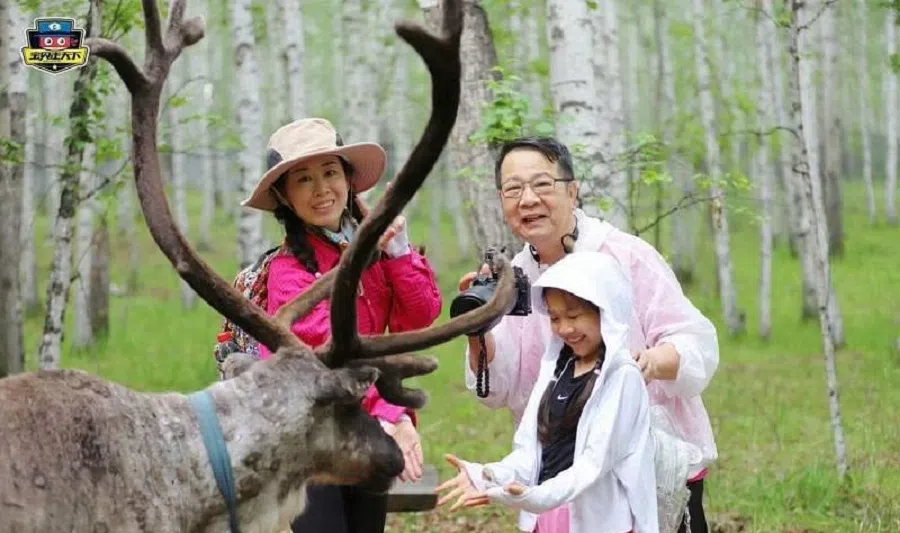Mainland spouses caught in between as cross-strait relations deteriorate
Lianhe Zaobao correspondent Woon Wei Jong speaks to mainland spouses as they describe their experiences and concerns amid growing tensions across the Taiwan Strait.

Cross-strait relations have worsened once more since the inauguration of Taiwan President Lai Ching-te, and over 400,000 mainland spouses in Taiwan (mainland Chinese who marry Taiwanese) are caught in the middle.
Mainland spouses interviewed all expressed concerns about how the future of cross-strait relations is unpredictable. They are most worried about conflict breaking out in the Taiwan Strait and that the next generation will be forced onto the battlefield.
Lai said in his inauguration speech on 20 May that “the Republic of China and the People’s Republic of China are not subordinate to each other”, stressing Taiwan’s “de facto independence”, which led to a strong backlash from the mainland and heightened tensions in the Taiwan Strait.
For mainland spouses living in Taiwan, they are caught between their parents’ home on the one hand, and their own family with their husbands, or with their in-laws on the other — the worsening cross-strait relations have landed them in an awkward situation.
A mainland spouse who wished to remain unnamed described to Lianhe Zaobao that Lai’s words during his speech “made me gasp in fear”. She found herself torn between two fears: the fear of being labelled a traitor for criticising the mainland, and the worry of being perceived as disloyal to a democratically elected president if she were to comment on Taiwan.
“As a mother, I am not willing to see my son being forced onto the battlefield; who should he point his rifle at?” — Wang Aiqin, a mainland Chinese spouse
Worries for next generation
Wang Aiqin, 53, from Zhoushan, Zhejiang, who has been married for 31 years to a Taiwanese businessman, said in an interview with Lianhe Zaobao that she was very worried that war would ignite between both sides of the strait, especially with her 26-year-old son graduating from his master’s programme this year and set to serve one year in military service. “As a mother, I am not willing to see my son being forced onto the battlefield; who should he point his rifle at?”

Wang has volunteered at the Taipei Joushan Association for many years. She once helped a Zhoushan veteran publish a commemorative volume marking the 70th anniversary of the relocation of Zhoushan veterans to Taiwan in 1950.
What she remembered most vividly was the emotional response of many veterans as they recounted the circumstances of their retreat to Taiwan — they were in tears as they were unable to be with their families. Wang added: “I saved these poignant video interviews. History must not repeat itself.”
She said that safeguarding peace and stability across the strait is what the people want. “Cross strait relations have stagnated due to a lack of political trust. This is when civil organisations have a bigger responsibility, as they are the bridge and the link — people-to-people exchanges cannot be suspended or stopped,” she added.
To this end, in June 2023, Wang founded the Association for the Promotion of Chinese Cross Strait Trade and Cultural Education. She takes on the role of chairperson and has brought young students to visit various areas in the mainland, hoping to close the gap between the communities through youth exchanges.
Wang used to oversee several branches of a restaurant chain in Hangzhou while her son attended a prestigious Chinese school. However, her husband had to return to Taiwan due to business challenges in China. In 2007, Wang decided to join him and together they ran a stall at a night market for a period of time.
The couple now operate a retail store in Taiwan. When the business took a break during the pandemic, Wang took the opportunity to upskill herself, obtaining a master of science in management from Tamkang University.
Encouraging signs
He Hua, 51, has lived in Taiwan for 20 years since she got married, and has a son and daughter. She is optimistic that with the mainland growing stronger by the day and US influence weakening — and with the anti-independence opposition parties keeping things in balance — Taiwan independence would be restricted while people-to-people and economic exchanges would continue to improve. Thus, she felt that prospects for both the strait and the people “should not be too bad”.
... Lai indeed made a bold inauguration speech, which angered the other side of the Taiwan Strait. “Mainland Chinese spouses in Taiwan can only fend for themselves now.” — Kong Yan, a Chengdu native

He, who represented the New Party in 2020 and 2024 in the legislative election, decided after failing to secure a seat that she would run for district chief in 2026, serving the people from the ground. She said participating in politics is just a different way for her to give back to society.
He was chairperson for her residential area’s management committee several times, and a few years ago, she even invited mainland spouses who had established themselves in various fields to form the Taiwan New Immigrant Trade and Cultural Exchange Association, regularly holding events and caring for the disadvantaged.
Hailing from Hunan, He met her husband, a Taiwanese businessman, at an airport. After moving to Taiwan following their marriage, she worked as an operator at a television shopping channel before setting up her own business in cosmetic manufacturing and commerce.
Fending for themselves
Chengdu native Kong Yan, 38, married a Taiwanese and has been living in Taiwan for 14 years. She said candidly that Lai indeed made a bold inauguration speech, which angered the other side of the Taiwan Strait. “Mainland Chinese spouses in Taiwan can only fend for themselves now,” she said.
While working at a factory in Zhejiang in 2008, Kong met her Taiwanese businessman husband who was then widowed and facing business setbacks. Captivated by his intellect and easygoing nature, she married him after two years of courtship. Kong settled down in Taiwan with her husband when the factory subsequently shuttered due to poor business. However, shortly after their son was born, the couple filed for divorce on the grounds of incompatibility.

Five years ago, Kong started working at a buffet restaurant and met her current husband who is of a similar age and very accommodating towards her. She plans to reside in Taiwan permanently with her husband so that she can regularly visit her son from her previous marriage.
Jiang Feng, 44, who came from Harbin in northern China, has been living in Taiwan for 13 years after marrying a Taiwanese husband. She thinks that regardless of the ups and downs in cross-strait relations, “both sides of the Taiwan Strait are one family to me because we share the same roots and bloodline”.
Statistics from Taiwan showed that as of March, there are 362,724 mainland Chinese spouses in Taiwan, with women in the majority and men accounting for only 6%.

She revealed that while she has faced discrimination as a mainland Chinese spouse, this does not bother her. Instead, she admires the warmth and sincerity of the Taiwanese, their respect for others, and the island’s comprehensive health insurance and healthcare systems.
Rebound in cross-strait marriages post-pandemic
There has been no official interaction between the ruling Democratic Progressive Party (DPP) and the Chinese Communist Party (CCP) over the eight years of DPP rule, and the divide between the people on both sides of the Taiwan Strait has deepened.
The number of cross-strait marriages plunged from a record high of 34,109 in 2003 to a record low of just 1,453 in 2021 during the Covid lockdown. This figure rebounded last year, with 6,443 new cross-strait marriages recorded, or an average of 18 marriages per day.
Statistics from Taiwan showed that as of March, there are 362,724 mainland Chinese spouses in Taiwan, with women in the majority and men accounting for only 6%. Statistics from the mainland estimated that there are over 400,000 mainland Chinese spouses in Taiwan.
Xu Chunying, 62, secretary-general of the Taiwan-based Chinese Cross-Strait Marriage and Family Service Alliance, pointed out when interviewed that interaction between both sides of the Taiwan Strait ceased following their separation in 1949. It was not until 1987, when veterans were allowed to visit their relatives in the mainland, that civilian exchanges began, sparking a surge in cross-strait marriages.
... “some veterans would call their wife a ‘communist bandit’ or a ‘communist’ when they got angry”. This resulted in frequent cases of divorce or family violence. — Xu Chunying, Secretary-General, Chinese Cross-Strait Marriage and Family Service Alliance

She said that Taiwan’s economy and society were better than the mainland’s back then and that many Taiwan veterans married young wives from the mainland. But because they often lacked a strong emotional foundation, cross-strait tensions got carried over into their families and “some veterans would call their wife a ‘communist bandit’ or a ‘communist’ when they got angry”. This resulted in frequent cases of divorce or family violence.
Looking to the future
As the number of veterans dwindled, and with the mainland’s rapid economic and social development, the social status of cross-strait couples became increasingly equal. Xu observed that cross-strait marriages are now mainly the result of free love; cases of divorce or family violence have also gone down.
Every election season, mainland Chinese spouses are often “smeared red, smeared blue or stigmatised”, which in turn hinders their political ambitions. Xu, who is also the honorary chairwoman of the Taiwan New Residents Development Association, feels strongly about this.
Last year, the Taiwan People’s Party (TPP) planned to nominate her as a legislator-at-large, but the pan-Green camp doubted if she had renounced her mainland Chinese citizenship and accused her of having once been a CCP member. While Xu publicly refuted those allegations and rumours, she had to turn down the TPP’s offer in the end.
When interviewed, Straits Economic and Cultural Interchange Association secretary-general Teng Tai-hsien urged the government to treat mainland Chinese spouses who have become naturalised citizens fairly, including upholding the right to political participation in accordance with the law, and “morally condemning” those who stigmatise mainland Chinese spouses or accuse them of being mainland spies.
Teng said that many mainland Chinese spouses of Taiwan businessmen not only take good care of the family but also help their husband expand their political and business network in mainland China and assist them with their investment and business operations. He suggested that since no consensus can be reached on a cross-strait political framework, the government could consider leveraging women’s soft power to help thaw cross-strait relations through dialogue, by empowering mainland Chinese spouses to serve as intermediaries with the mainland.
This article was first published in Lianhe Zaobao as “两岸关系恶化 陆配成夹心人”.





